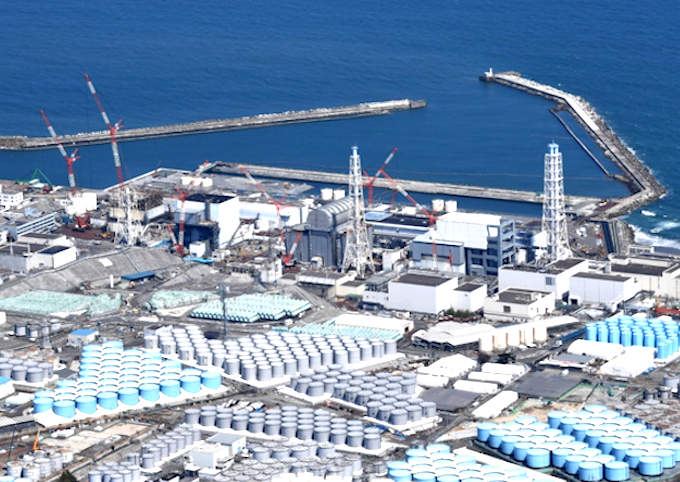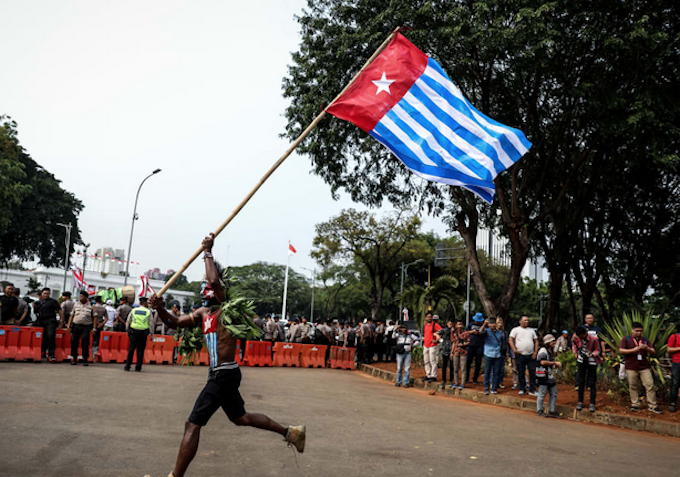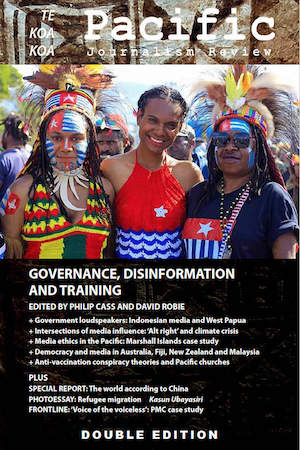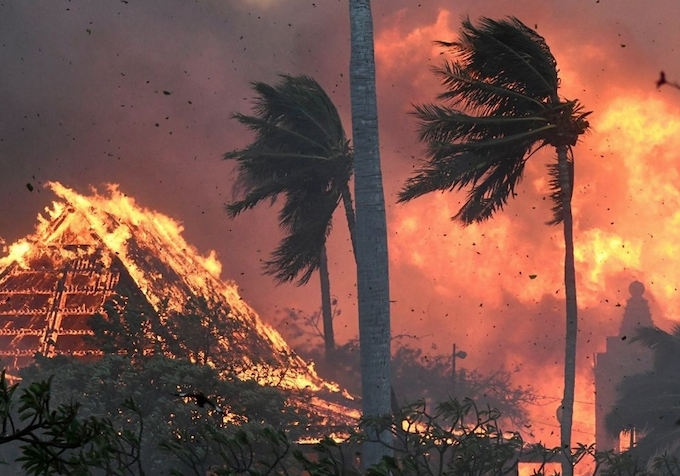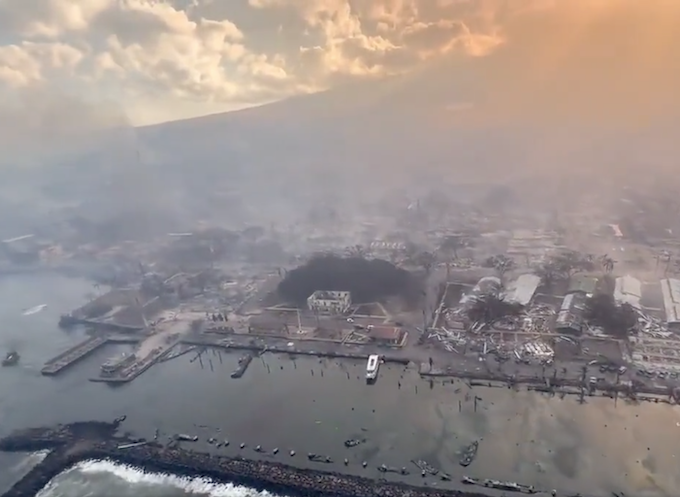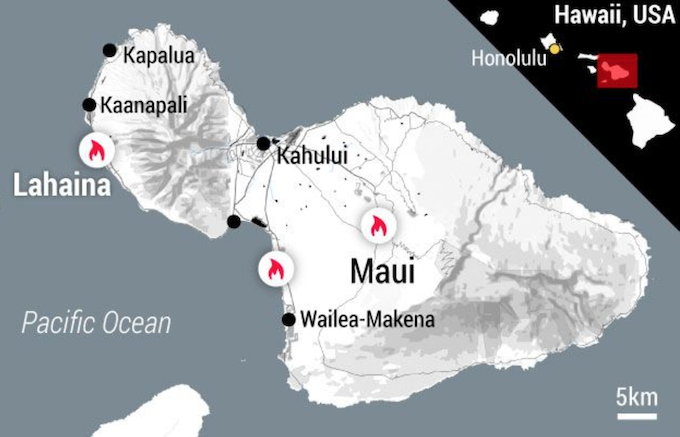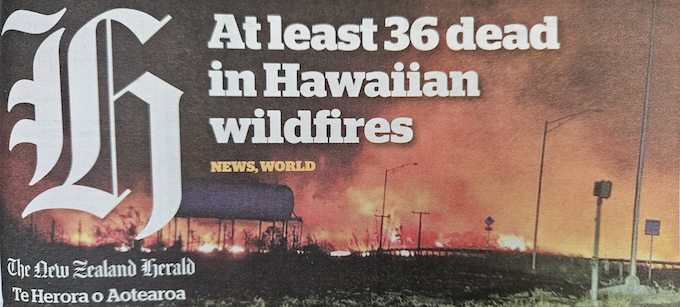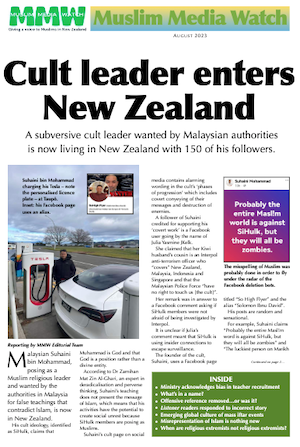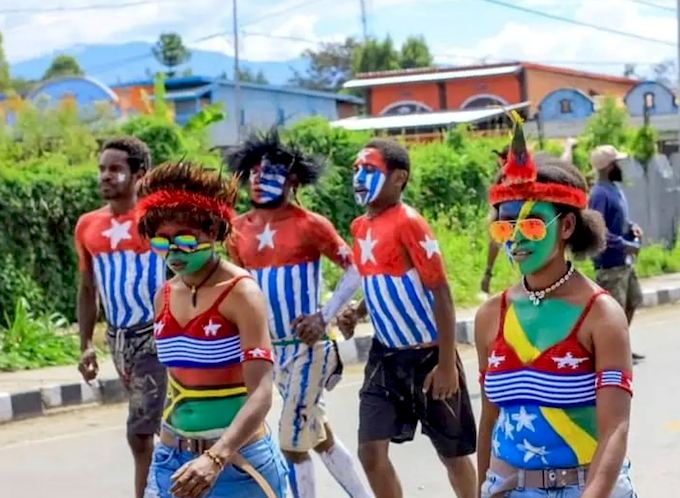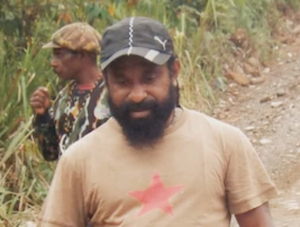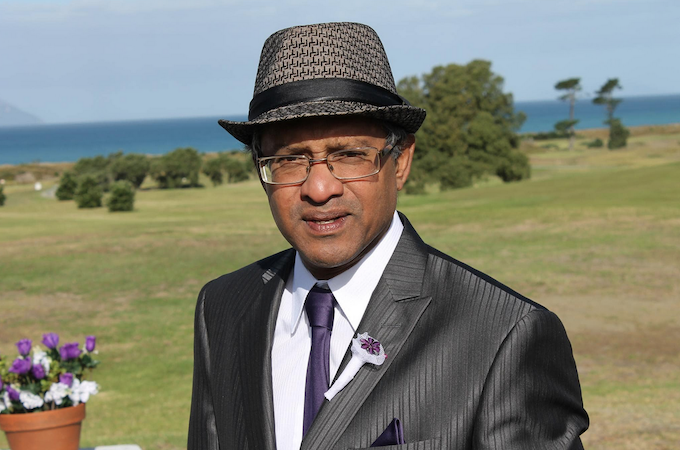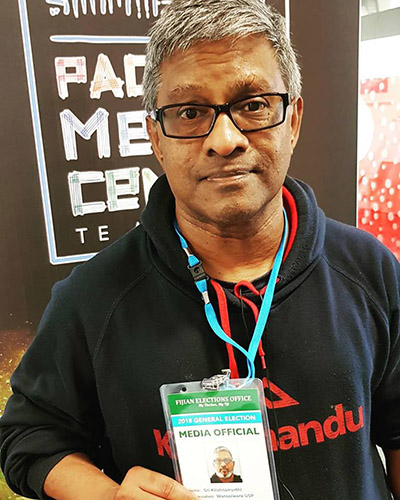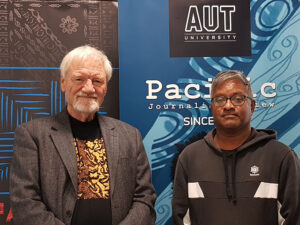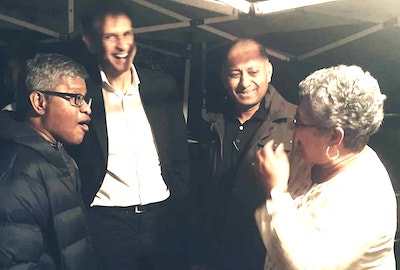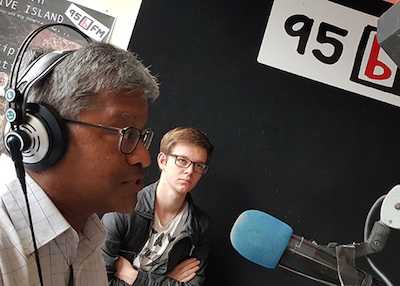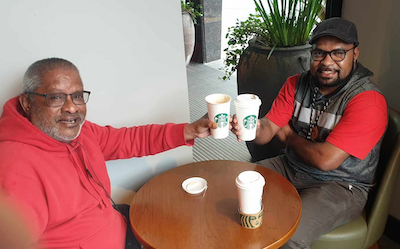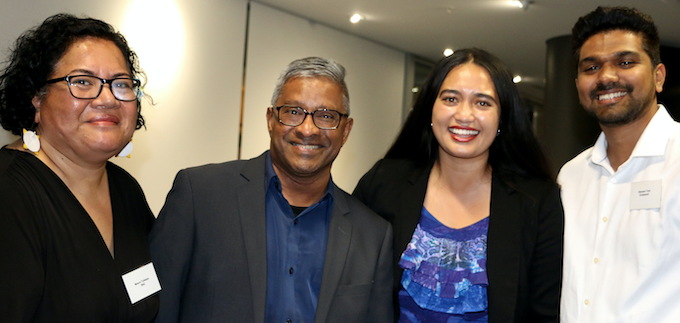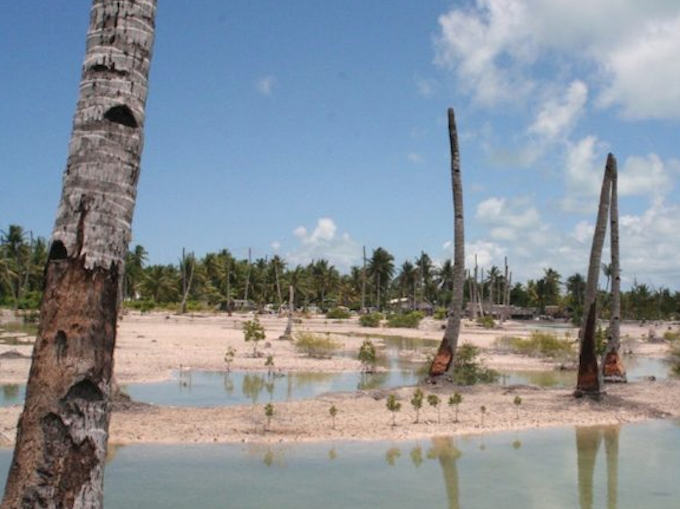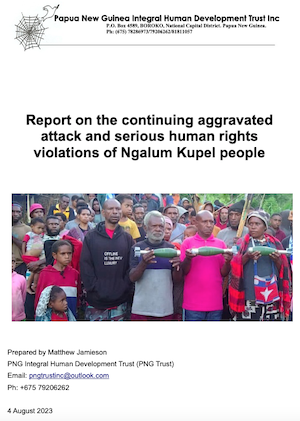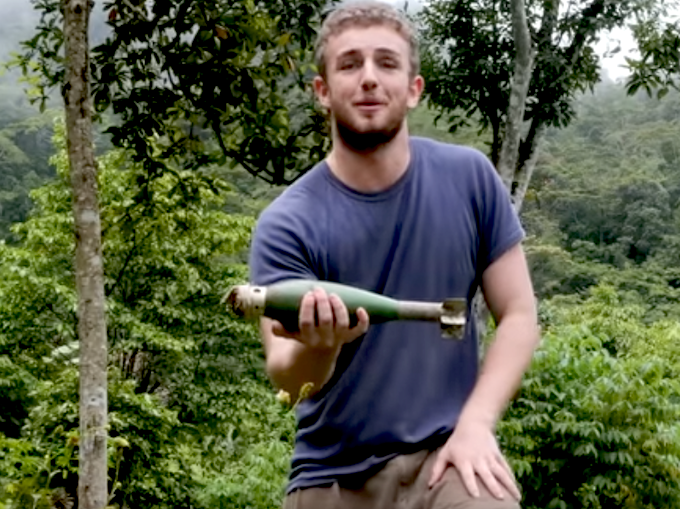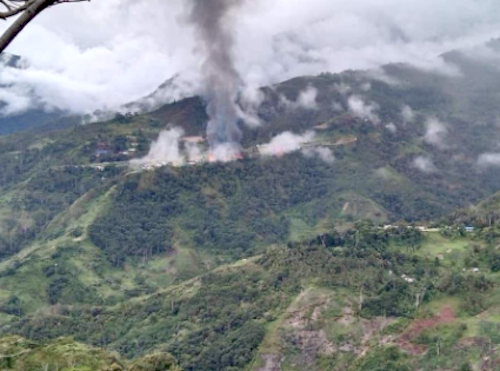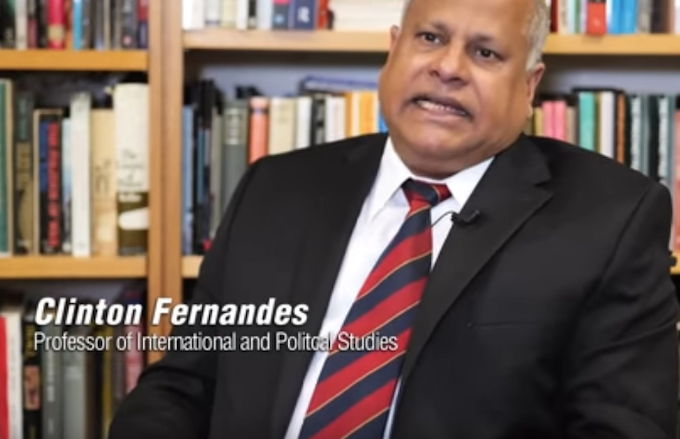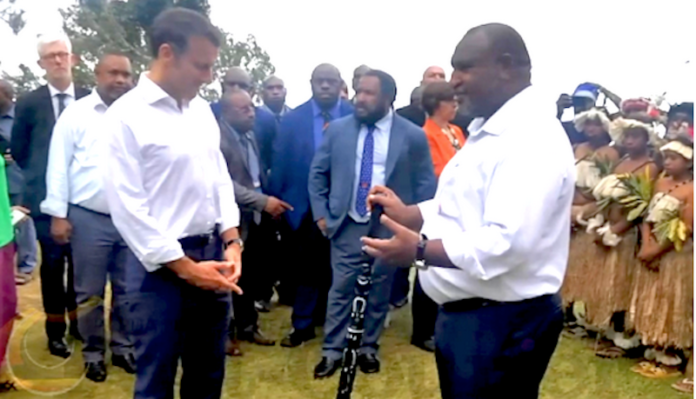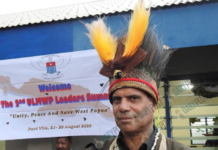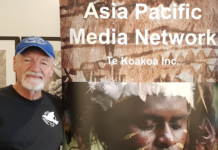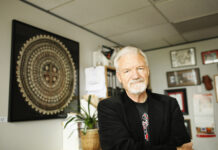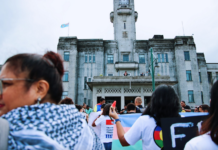By Finau Fonua
The death toll from the devastating wildfire that engulfed the historic beachside town of Lāhainā on the island of Maui in Hawai’i, continues to rise, with 80 reported dead so far.
Images of Lāhainā show a town obliterated by wildfires with homes and cars in ashes.
Thousands have lost everything and have evacuated to emergency centres.
The firestorm hit Lāhainā like a blowtorch, with wildfires from vegetation fanned by sustained 100km/h winds generated from a hurricane located south of Hawai’i.
“The fire started on the top of the mountain within about a five-mile radius from us,” Leimoana Fa’alogo, a 28-year-old resident of Lāhainā who witnessed the disaster, said.
“The fire was moving down the hill superfast and I would say that within 10 minutes it reached the town and within another 10 minutes moved from one neighbourhood to the next,” Fa’alogo said.
“Because of the high winds from Hurricane Dora, the fire was moving fast and soon people were trying to evacuate.”
Hawai’i wildfires – dozens killed. Video: Al Jazeera
‘It was moving too fast’
Fa’alogo told RNZ Pacific ceaseless winds intensified the firewall, which quickly reached the town. It moved so fast, firefighters were unable to keep up.
“They were responding but because of the high winds, it was moving too fast for them,” Fa’alogo said.
“They just weren’t able to respond quickly enough and didn’t have the manpower to continue.”

Realising the fires could not be stopped, Lāhainā residents abandoned their homes and evacuated. Some residents jumped into the ocean as their escape routes became cutoff by fires.
“We were in the home with my husband and when I looked outside there was smoke everywhere,” Lāhainā resident Alejandra Bautista said.
“It was scary, we just grabbed some things and left. I’ve lost my house.”
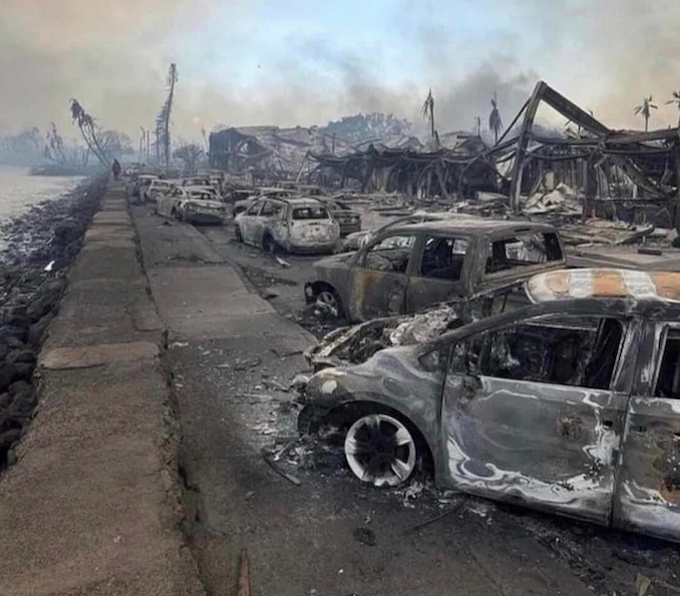
Realising the fires could not be stopped, Lāhainā residents abandoned their homes and evacuated. Some residents jumped into the ocean as their escape routes became cutoff by fires.
“We were in the home with my husband and when I looked outside there was smoke everywhere,” Lāhainā resident Alejandra Bautista said.
‘Scary – I’ve lost my house’
“It was scary, we just grabbed some things and left. I’ve lost my house.”
Many residents left Lāhainā as the town burned around them. Social media videos by drivers showed apocalyptic scenes with houses burning on both sides of the road, as they navigated around debris on the road.
“It was just hectic, and because there were so many electrical poles that fell and roads were blocked, but everyone was in panic mode and just trying to get out,” Fa’alogo said.
“My whole neighbourhood is gone, it’s just all gone, homes damaged, bodies on the street, cars abandoned — caught on fire, people jumping into the water.
“It’s like a movie, these are things you see in a movie, that’s exactly what it looks like. Our town just looks like The Walking Dead.”
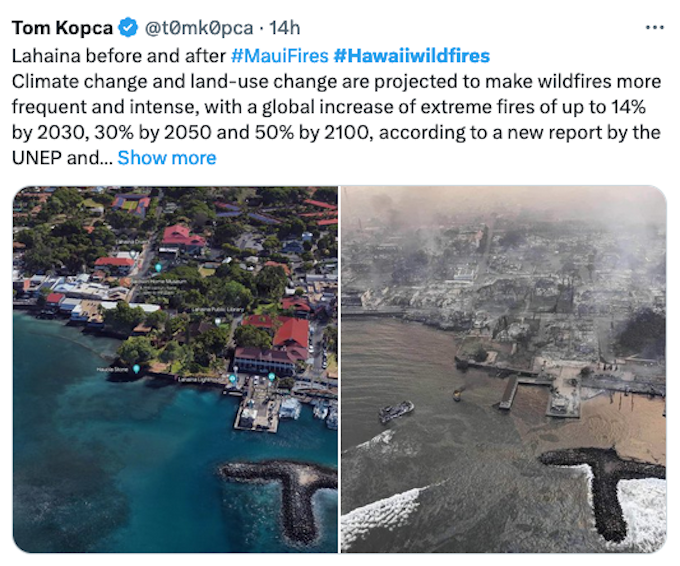
Aid package
As the town continued to burn, US President Joe Biden agreed to an aid package submitted by Hawai’i’s Governor Josh Green. No specific figure was given, but the package will cover damages of residents and businesses affected.
“What we saw is likely the largest disaster in Hawai’i state history,” Green said.
“We are going to need to house thousands of people. It’s our intent to initially seek 2000 rooms so we can get housing for people. That means reaching out to hotels and those in the community.”
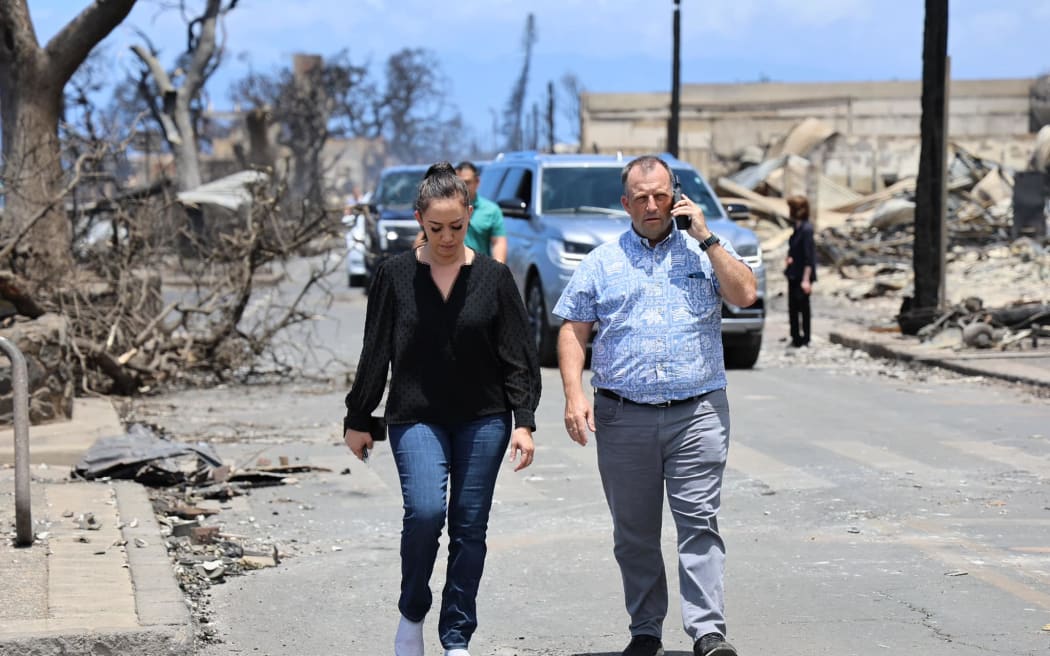
Fa’alogo was among those thousands — who were staying in churches, schools and community centres across Maui.
“Right now, we have been evacuated and we are currently at the Latter Day Saints Church. We’re getting a lot of help with toiletries, clothes and a lot of food . . . were getting more food than in our own home.
“We have organisations like the Tongan ward of the LDS Church and the Relief Society, they cooked for us last night and we’re up until 2am because people were still arriving looking for shelter.”
Wildfires have razed much of Hawai‘i’s former capital Lahaina to the ground. Colonial land practices and tourism are largely to blame, experts say. pic.twitter.com/B9SmrPEwxr
— AJ+ (@ajplus) August 10, 2023
Most Maui homes safe
While Lāhainā and at least two other smaller settlements were torched by wildfires, the majority of homes on Maui were safe.
Sandy Kapukala, who lived in the town of Kihei, told RNZ Pacific the western part of the island where Lāhainā is located had been badly hit, while other areas such as the capital Kahului were unaffected.
“There’s still no power, we don’t, we haven’t heard from a lot of people. The roads are blocked, people can’t get into that part of the island but the part of the island where I am . . . it’s a sunny beautiful day and people are on vacation, so it’s one extreme to the other.”
Fa’alogo said the main concern of the Lāhainā community was contacting family and friends separated during the disaster.
Many residents were still being evacuated from the Lāhainā area and surrounding communities where roads have been blocked, she said.
“The whole town is sad and a lot of people are trying to locate their families because they were separated.
“Currently, the side of the island where Lāhainā is located, is running out of water and food, and there’s still people who need to be evacuated to Kahului [capital of Maui].”
Finau Fonua is an RNZ Pacific journalist. This article is republished under a community partnership agreement with RNZ and Asia Pacific Report.


